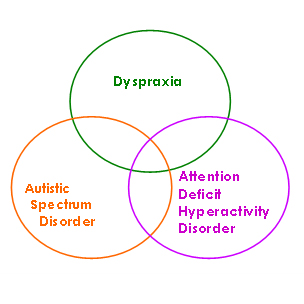Families
Assessment
Families enquiring about Occupational Therapy assessment for their child usually have two questions:
- What’s going on?
- What can we do to help?
A detailed assessment aims to answer these questions. Assessment begins with a detailed discussion with parents / carers which is facilitated through a specially designed questionnaire. This includes your child’s developmental history, sensory responses, motor skills, social-emotional behaviours and consideration of your child’s strengths, interests, current needs and the goals of intervention.
Direct assessment with your child will depend on their age, learning ability and developmental level. It may include structured play observations & / or standardised assessments such as the Movement Assessment Battery for Children and Developmental Test of Visual Perception. Clinical Observations as devised by Jean Ayres, founder of Sensory Integration theory provide insight into the underlying maturity of the nervous system upon which your child will build their skills. This enables assessment to look at quality of movement and effort expended as well as actual results (i.e. qualitative and quantitative).
With your consent, information from teaching staff and other professionals will be sought in order to provide as full a picture of your child’s abilities as possible.
Assessment results and reports from parents, school and other professionals are then analysed in order to compile a detailed report in which a conclusion is reached and individualised recommendations are described for home and school.
Intervention
Assessment with detailed recommendations is the initial intervention option. Neuroscientists confirm that the brain makes changes through frequent engagement in the right activities (Perry….). Many families choose this route to address their child’s sensory processing and develop their motor and independence skills.
It’s great to have targeted, practical advice on these things and we have already started using it in our daily lives.”
Parent of child with developmental delay
This can be further facilitated by a home visit on completion of the analysis and report in order to demonstrate the described activities in situ.
Sue provided us with lots of good advice and information on how to help our son develop and thrive at school and suggested fun activities we can practice at home, even coming to visit us to show us what we could do in our own home environment.”
Alex, Mum
Direct occupational therapy intervention is also available. This may take place weekly, fortnightly or as a ‘top-up’ on an as needed basis. Intervention sessions are available in a purpose built Sensory Integration room in the west of Wolverhampton. If this is not feasible, therapy can also take place in your home or child’s school.
Sue immediately built a good rapport with my son and he thoroughly enjoys his sessions with her.”
Parents and children are encouraged to set goals relevant to their needs and interests and are asked to score them on a scale of 1 – 10 where 1 is a great concern and 10 is acceptable in order to provide a measure of change.


